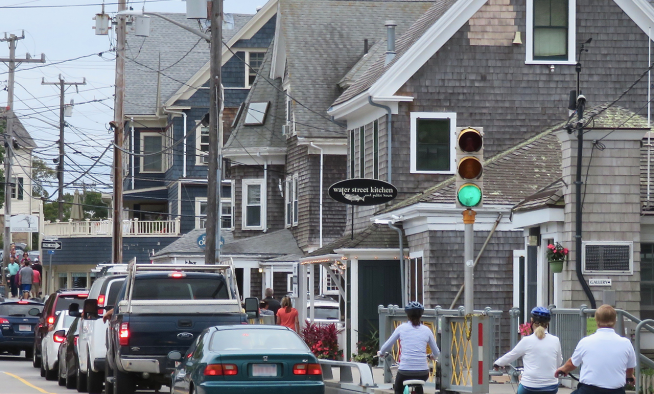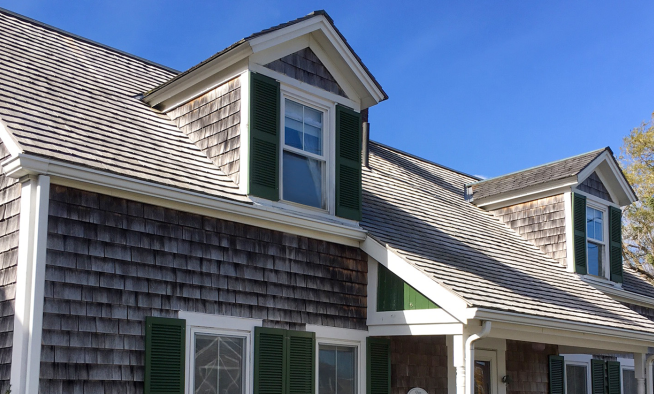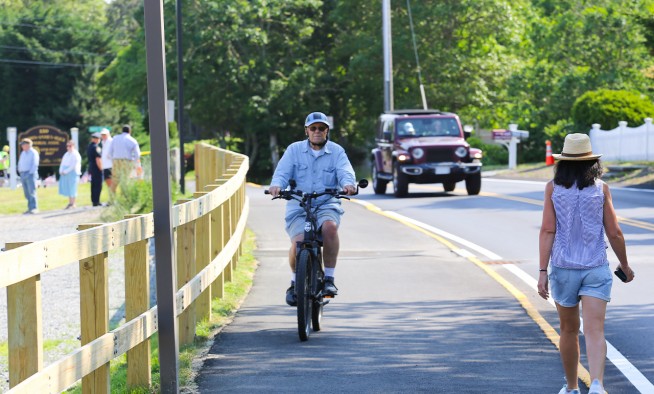The Freshwater Initiative: A Limnologist’s Perspective
Ponds are complex systems with physical, chemical, and biological interactions affected by weather and sediments, stormwater and groundwater flows, and human and wildlife activity.
Compiling information to understand, preserve, and improve the health and sustainability of Cape Cod's 890 ponds is a complex task. A team of Commission staff, partners, and consultants continue to work on the effort that began last year.
To understand the dynamics at work affecting water quality in ponds, Commission staff sought a specialist familiar with the biogeochemical interactions in freshwater bodies, the monitoring metrics needed to track these interactions, and potential strategies to address water quality problems. A limnologist helps us ask the right questions, delve deeply into the potential sources of the issues, and consider solutions to water quality decline.
Anchor QEA hired to consult on the Freshwater Initiative
This spring, the Commission contracted with Anchor QEA, bringing aboard limnologist Dr. Liz Moran and engineer-in-training Pia Tapiawala. The Anchor team meets regularly with Commission staff to help guide and refine work under different Freshwater Initiative tasks.
So far this year, Dr. Moran and Ms. Tapiawala have reviewed all pond reports available across Cape Cod to help synthesize impacts, pond health status, and suggested solutions. They have explored watershed-based impacts on ponds through GIS analysis, looking at land use activities within the buffers to ponds and within pond watersheds. They have also joined our Technical Advisory Group reviewing pond water quality strategies, participating in those discussions, and adding content to the pond strategies database.
The Anchor team has provided recommendations about the approach and monitoring needed for the Regional Pond Monitoring Program, assisting in the selection of 50 representative ponds to study, and suggesting ways to utilize citizen science to collect more information about ponds, meeting multiple goals for data collection and stakeholder engagement.
Perhaps most significantly, they have participated in a small working group with Commission staff and staff from the Woods Hole Oceanographic Institute (WHOI) designing water quality analyses that will be provided through the Pond Water Quality Data Portal, providing expertise and guidance on the types of analyses that will be crucial for pond managers.
Dr. Moran and Ms. Tapiawala have brought experience from pond work on Cape Cod and out of state to consider various monitoring and strategy identification approaches. Their expertise has brought a broad, nuanced understanding of the impacts on ponds and the complexity of the causes of and solutions to these impacts.
The Anchor team has provided insight into the various and complex influences on pond ecosystem health and how to determine them on a pond-by-pond basis. At the same time, climate and development trends across the region can help us understand some of the vectors of change at the regional scale and inform actions to improve the chances of slowing or reversing water quality decline.
What is a limnologist?
A limnologist studies the biological, physical, and chemical characteristics of inland freshwater systems such as lakes, rivers, streams, and ponds.
Dr. Moran's career in limnology began as a graduate student studying a chain of sixteen lakes that feed into Maine's Kennebec River. A biology major, Moran secured an internship working on an integrated wastewater management plan for the southern Kennebec Valley region. In that role, she learned how quantitative analysis could lead to informed management decisions, knowledge that helped chart her professional course, leading her to study limnology and environmental engineering at Cornell University.
Dr. Moran earned a PhD in Water Resources following a research fellowship in New York's Finger Lakes region, where she examined changes in water quality in response to the detergent phosphorous ban. She began work at an engineering firm in central New York. In that role, she was dispatched to Cape Cod in the late 1980s to work on wastewater issues. She had an opportunity to study ponds and lakes, gaining an understanding of the unique characteristics of Cape Cod's freshwater resources.
Learn more about the Freshwater Initiative: www.capecodcommission.org/freshwater
Related Posts




